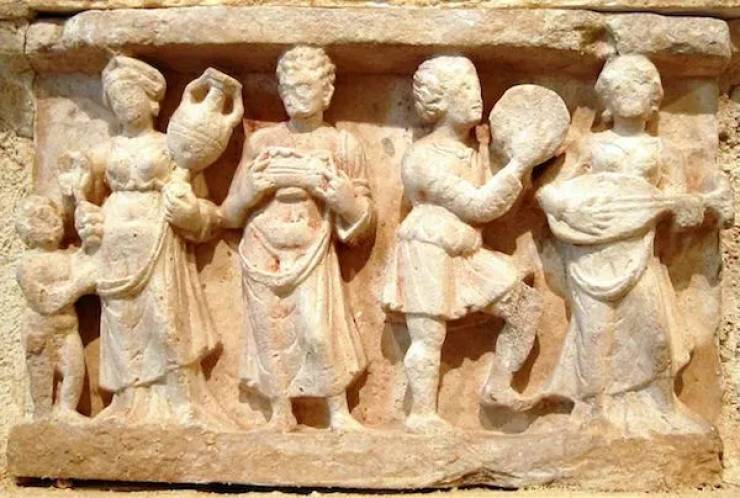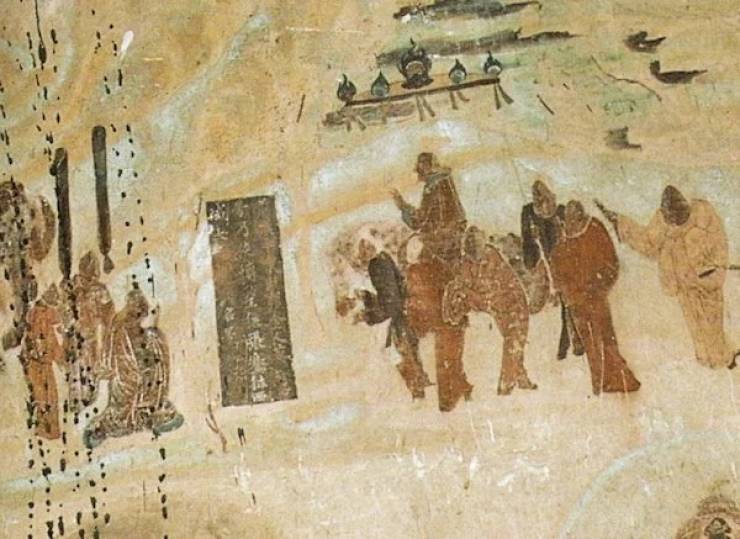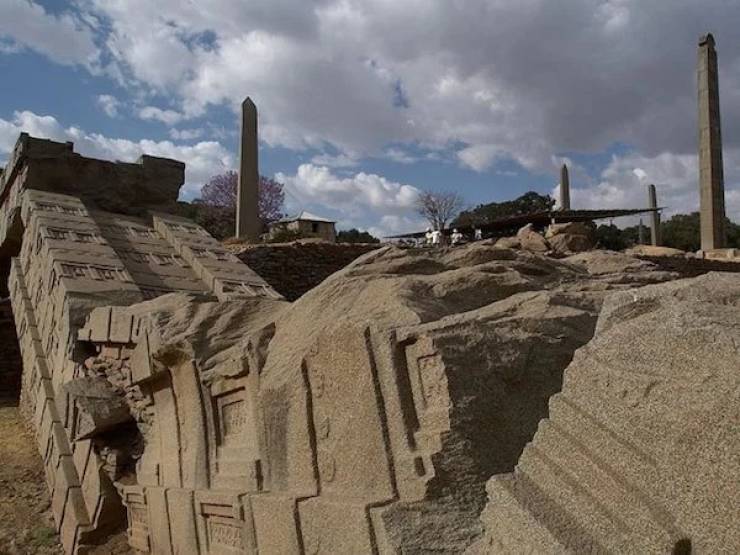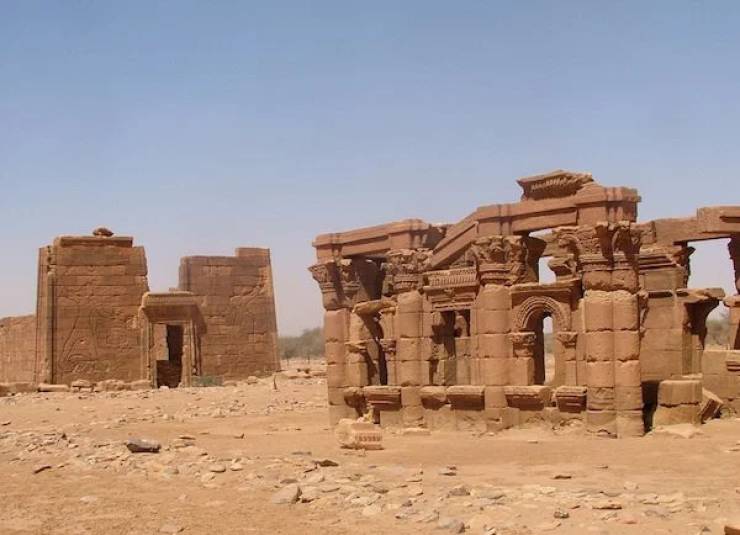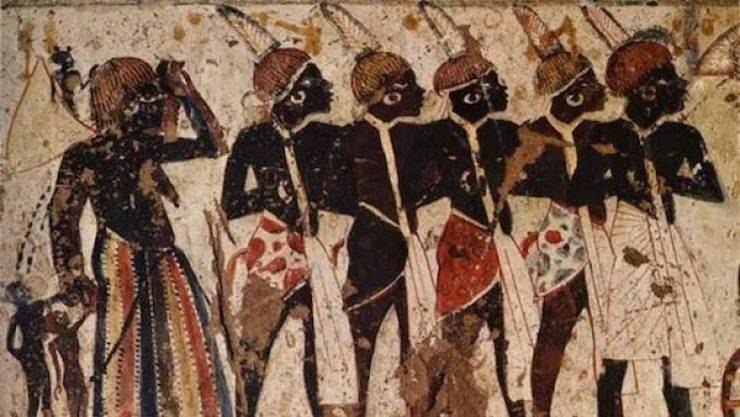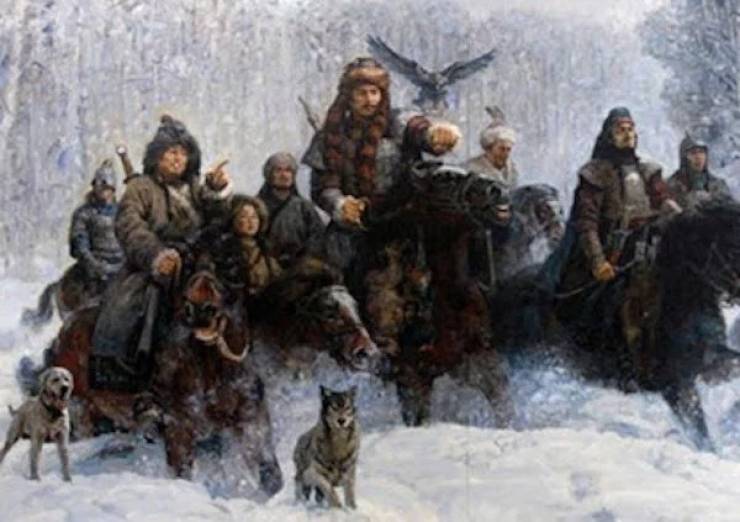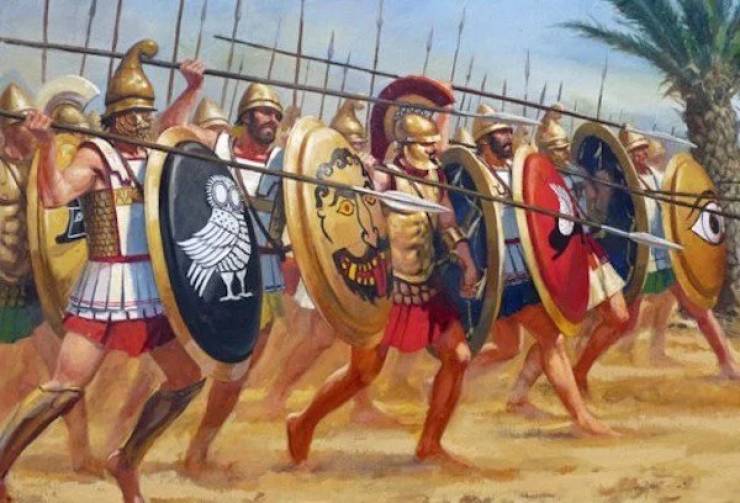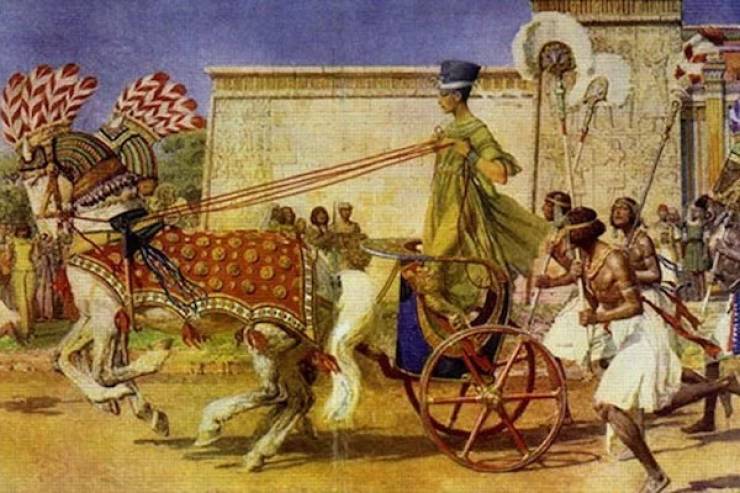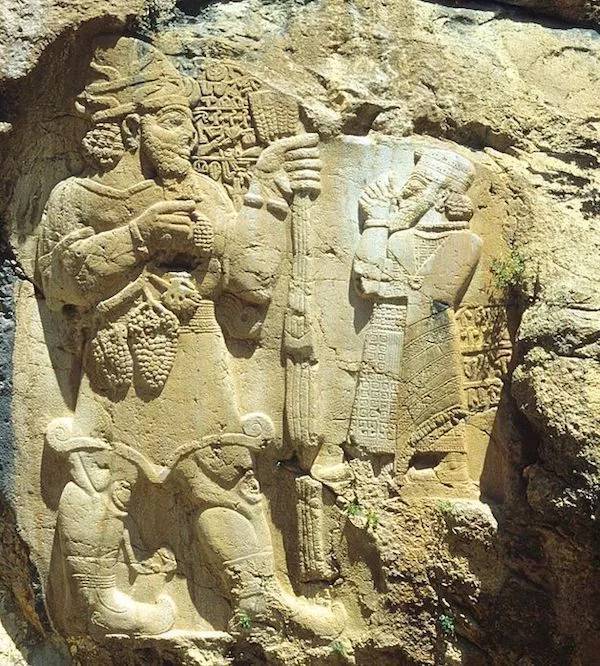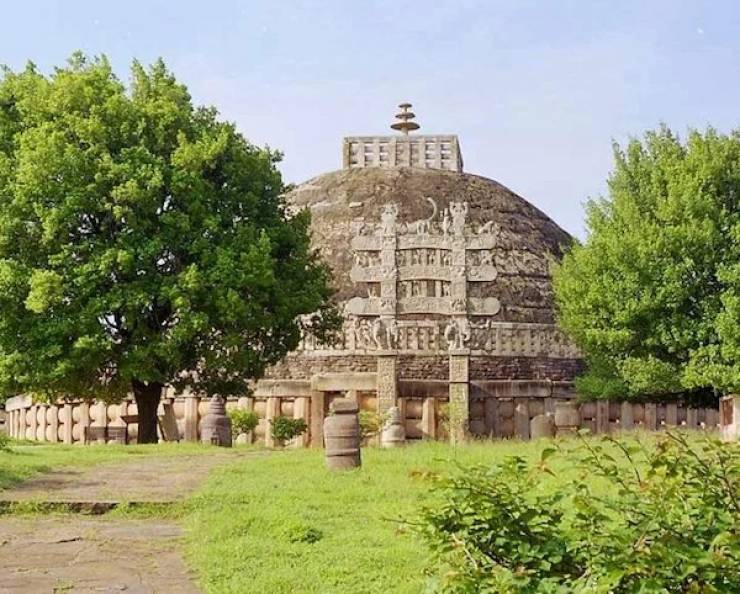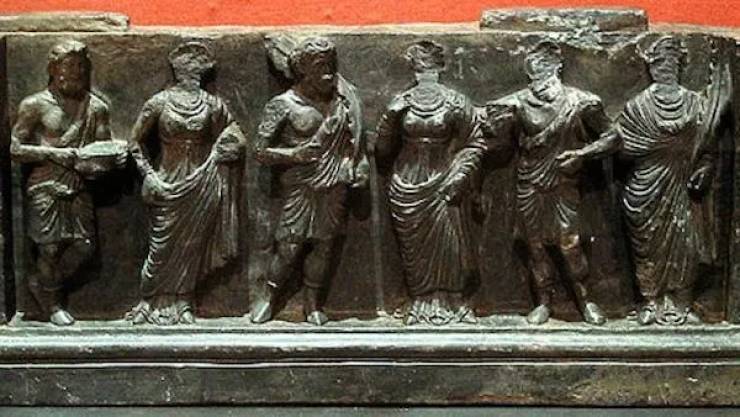The Yuezhi
This civilization was a tribe of India-European people that lived on the border of what we know now as China, near Tibet. They were active during the 1st Millennium BC, and were notable for fighting everybody in Eurasia.
They migrated around, exchanging jade, silk and horses, were kicked out of several territories, and then headed west towards India and Greece. They fought a group called the Greco-Bactrians, lost, and moved into India and Pakistan, carving out their own territory.
Three centuries later, they were eventually defeated by the combined might of Persia, Pakistan and India and absorbed into their cultures.
The Askum
The Kingdom of Askum (also known as Axum), has been the subject of countless mythical legends. Whether it’s the original home of the Queen of Sheba, or the resting place of the Ark of the Covenant, Western Civilizations have been fascinated with these guys. But this Kingdom in modern-day Ethiopia did actually exist.
In it’s heyday, it was an international trading power, and had access to the Nile and the Red Sea trading routes. By the third century A.D., it was generally assumed that it was one of the worlds four greatest kingdoms, along with Rome, China, and Persia.
The Kingdom accepted Christianity shortly after the Roman Empire did and thrived to the Middle Ages, until it became a victim to the Crusades and the expansion of Islam.
The Kush
This Kingdom was mentioned throughout Egypt as having an abundance of gold and other valuable natural resources, as well as a deep history and sophisticated urban society. Due to that, they were conquered by Egypt and exploited from 1500-1000 B.C.
By the 9th century, Egyptian instability allowed the Kushites to gain their independence, and they then turned around in 750, and conquered Egypt. It was they, who revived the practice of building pyramids and implemented construction projects across the Sudan.
Both the Kush and Egyptian Kingdoms were then ousted by an Assyrian invasion, so the Kush moved to a different area, and developed their own form of writing that we’ve yet to translate, then they faded away. The decline of the Kingdom of Kush, is still one of greatest mysteries of the ancient world.
The Yam
The Kingdom of Yam definitely existed and is recorded as trading with the Old Kingdom of Egypt, but it’s physical location is as mysterious as Atlantis. According to one account, the Kingdom of Yam was a land of incense, ebony, leopard skins, elephant tusks and boomerangs. So where’s that?
Based on accounts of how long the journey was, as well as hieroglyphs found over 430 miles away from Egypt, across the Sahara Dessert, it seems like the Kingdom of Yam was in present day Chad. But here’s the thing; the wheel wasn’t invented yet, so Egyptians would have had to undertake a 7 month journey, with only donkeys as pack animals, to trade with this Kingdom. That’s hardcore.
The Xiongnu Empire
There are very few records left about these guys, but what is know is this: t hey were a group of nomads which dominated the north part of China, from the 3rd Century to the 1st, BC. They were technically like Genghis Khan’s Mongol army, but a century earlier and with chariots, which made them a fearsome force.
They were so badass that they inspired the Qin Emperor to begin work on the Great Wall, and 50 years later, they were still attacking it, while the Chinese kept on rebuilding it. Even then, they nearly made it close enough to the Chinese capital to sack it several times.
Somehow, around the year 166 BC, internal discord and conflict with other nomadic tribes, weakened the Xiongnu enough for the Chinese to take care of them.
The Greco-Bactria
While everyone talks about the life and adventures of Alexander the Great, no one really talks about the men who followed him into battle, post-conquest. After Alexander died unexpectedly, his generals fought over his conquered lands and divided it up amongst themselves. The most well-known Empire that came out of that was the Seleucid Empire, but no one really talks about the splinter state of Greco-Bactria (near modern-day Afghanistan).
This Empire became so powerful by the Third Century BC, that it declared independence from the Seleucid Empire and became known as the land of a thousand cities. They were at the centre of a fusion of Persian, Indian, Scythian and Greek cultures. It was considered a virtual paradise until it came under attack a century later, and the people were forced to scatter.
Ruins of the capital city Alexandria on the Oxus (now known as Ai Khanoum), were still evident up until 1978 when the Soviet-Afghan War destroyed the site.
The Mitanni Kingdom
This state existed between 1500 B.C. until 1200 B.C., in the are we now call Syria and northern Iraq. Oddly enough, while you may not have heard of the kingdom, you know at least one person from there; Queen Nefertiti. She was reportedly a princess from there, and was married off to the Egyptian Pharaoh Amenhotep IV, to improve relations between the kingdoms.
There’s not a lot else that is known about the kingdom. They supposedly believed in things like Karma, reincarnation and cremation, and were a highly influential civilization. They were conquered by the Assyrians and whatever knowledge wasn’t saved or catalogued by the Egyptians, was lost.
The Tuwana
They don’t get any more lost and forgotten than these guys. Existing in what we call Turkey, this civilization was in it’s heyday during the ninth and eighth centuries B.C. All we have to go on, are a few inscriptions, but archaeologists do know that it was a very wealthy state, with a sophisticated system of hieroglyphics that may have influenced the Greek language.
The lack of knowledge on our part, however, only lasted until 2012, when a recent discovery of a walled city was revealed, that can help us piece together the history of this kingdom.
The Mauryan Empire
According to the obscure history books, a man named Chandragupta Maurya was the Indian equivalent to Alexander the Great. By the age of 20, he put the bulk of India under his rule, and after Alexander’s death, prevented his Macedonian generals from invading India.
This empire lasted from 322-187 B.C. until a coup left India divided, weak, and open to an invasion from the Greeks.
The Indo-Greeks
The Greeks were pretty much the most prolific civilization in the ancient world. While our high school history books talk about the Greeks from Greece, no one mentions the Indo-Greek Kingdom, which took over from he Greco-Bactrians in modern-day Afghanistan and Pakistan. They ruled the last two centuries B.C., and their style merged the aesthetics of both Greek and Indian art.
This Kingdom was notable for two things; the first was that they were Greeks that didn’t believe in the Greek pantheon of gods, but were Buddhists. The second, was that they actively traded with China, due to the unique alloys that their money was made out of. There’s also speculation that India-Greek artists were sent to China to teach their artisans how to build statues and that it’s their influence and hands that led to the creation of the Terracotta Army.
They were eventually ousted from their lands by the nomadic Yuezhi, as well as the native Indians.

